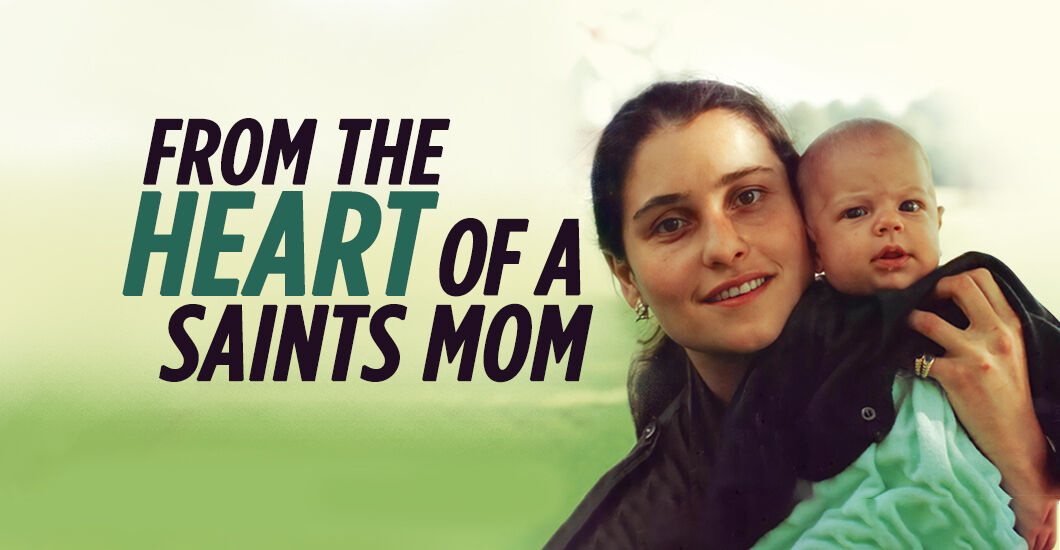Encounter
Special Interview: From the Heart of a Saint’s Mom
An Exclusive Interview with Antonia Salzano, mother of Blessed Carlo Acutis by Graziano Marcheschi, the Contributing Editor of Shalom Tidings as she speaks from her heart of what it’s being like to be a Saint’s mom.
At age seven he wrote, “My life plan is to be always close to Jesus.”
By the time he was fifteen, he had gone home to the Lord whom he had loved throughout his short life.
In between, is the remarkable story of a remarkably ordinary boy.
Ordinary, because he was not a standout athlete, nor a handsome movie star, nor even a brilliant scholar who finished graduate school when other kids are struggling through junior-high. He was a nice kid, a good kid. Very bright, to be sure: at age nine he read college textbooks to teach himself computer programming. But he did not win awards, nor influence people on Twitter. Few outside his circle knew who he was—an only child, living with his parents in northern Italy, who went to school, played sports, enjoyed his friends, and knew how to handle a joystick.
Un-remarkable but Extraordinary
As a very young child he fell in love with God and from then on, he lived with a singular focus, with a hunger for God that few ever achieve. And by the time he left this world he had made an indelible mark on it. Always a boy on a mission, he wasted no time. When people could not see what he saw, even his own mother, he helped them open their eyes.
Via Zoom, I interviewed his mother, Antonia Salzano, and asked her to explain his hunger for God, which even Pope Francis described as a “precocious hunger”?
“This is a mystery for me,” she said. “But many saints had special relationships with God from an early age, even if their family was not religious.” Carlo’s mother speaks from her heart openly about having attended Mass only three times in her life before Carlo started dragging her there when he was three-and-a-half. The daughter of a publisher, she was influenced by artists, writers, and journalists, not popes or saints. She had no interest in matters of faith and now says she was destined to become a “goat” rather than a “sheep.” But then came this marvelous boy who “always raced ahead—he spoke his first word at three months, started talking at five months, and began writing at age four.” And in matters of faith, he was ahead even of most adults.
At age three, he began asking questions his mother could not answer—lots of questions about the Sacraments, the Holy Trinity, Original Sin, the Resurrection. “This created a struggle in me,” Antonia said, “because I myself was as ignorant as a child of three.” His Polish nanny was better able to answer Carlo’s questions and spoke with him often about matters of faith. But his mother’s inability to answer his questions, she said, “diminished my authority as a parent.” Carlo wanted to engage in devotions she had never practiced—honoring the saints, putting flowers before the Blessed Virgin, spending hours in church before the cross and tabernacle.” She was at a loss about how to deal with her son’s precocious spirituality.
The beginning of a Journey
The unexpected death of her father from a heart attack led Antonia to start asking her own questions about life after death. Then, Father Ilio, an elderly holy priest known as the Padre Pio of Bologna, whom she met through a friend, set her on a journey of faith on which Carlo would become her primary guide. After telling her all the sins of her life before she confessed them, Father Ilio prophesied that Carlo had a special mission that would be of great importance for the Church.
Eventually, she began studying Theology, but it is Carlo whom she credits with her “conversion,” calling him “her savior.” Because of Carlo, she came to recognize the miracle that occurs at each Holy Mass. “Through Carlo I understood that the bread and wine become the real presence of God among us. This was a fantastic discovery for me,” she said. His love of God and appreciation of the Eucharist was not something young Carlo kept to himself. “The specialness of Carlo was to be a witness,” she said, “…always happy, always smiling, never sad. ‘Sadness is looking in toward the self;’ Carlo would say, ‘happiness is looking out toward God.’” Carlo saw God in his classmates and everyone he met. “Because he was aware of this presence, he gave witness to this presence,” she said.
Nourished daily by the Eucharist and divine Adoration, Carlo sought out the homeless, bringing them blankets and food. He defended classmates who were bullied and helped those who needed homework assistance. His one goal was “to speak about God and help others get closer to God.”
Seize the day!
Perhaps because he sensed his life would be short, Carlo made good use of time. “When Jesus came,” Antonia commented, “he showed us how not to waste time. Each second of his life was glorification of God.” Carlo understood this well and emphasized the importance of living in the now. “Carpe diem! (Seize the day!),” he urged, “because every minute wasted is one less minute to glorify God.” That’s why this teenager limited himself to but one hour of video games per week!
The attraction that many who read about him instantly feel toward Carlo characterized his whole life. “Since he was a young boy, people were naturally attracted to him—not because he was a blue-eyed fair-haired child, but because of what was inside,” said his mother. “He had a way to connect with people that was extraordinary.”
Even in school he was beloved. “The Jesuit fathers noticed this,” she said. His classmates were competitive kids from the upper classes, focused on achievement and success. “Naturally, there is lots of jealousy between classmates, but with Carlo none of that happened. He melted those things like magic; with his smile and purity of heart he conquered everyone. He had the ability to enflame the hearts of people, to turn their cold hearts warm.”
“His secret was Jesus. He was so full of Jesus—daily Mass, Adoration before or after mass, devotion to the Immaculate Heart of Mary—that he lived his life with Jesus, for Jesus, and in Jesus.
A Foretaste of Heaven
“Carlo genuinely felt God’s presence in his life,” said his mother, “and this completely changed the way people looked at him. They understood there was something special here.”
Strangers, teachers, classmates, a holy priest, all recognized something unique in this boy. And that uniqueness was most evident in his love of the Eucharist. “The more we receive the Eucharist,” he said, “the more we will become like Jesus, so that on earth we will have a foretaste of Heaven.” All his life he looked toward Heaven and the Eucharist was his “highway to Heaven… the most supernatural thing we have,” he would say. From Carlo, Antonia learned that the Eucharist is spiritual nourishment that helps increase our capacity to love God and neighbor—and grow in holiness. Carlo used to say “when we face the Sun we get a tan, but when we stand before Jesus in the Eucharist we become saints.”
One of Carlo’s best known accomplishments is his website chronicling Eucharistic miracles throughout history. An exhibit developed from the website continues to travel the world from Europe to Japan, from the US to China. Besides the amazing number of visitors to the exhibit, numerous miracles have been documented, though none as significant as the many it has brought back to the Sacraments and the Eucharist.
Process of Subtraction
Carlo is beatified and his canonization is assured, pending the authentication of a second miracle. But Antonia is quick to point out that Carlo will not be canonized because of miracles but because of his Holy life. Holiness is determined by the witness of one’s life, by how well they lived the virtues—faith, hope, charity, prudence, justice, temperance, and fortitude. “Living the virtues heroically”—which the Catechism of the Catholic Church defines as ‘a habitual and firm disposition to do the good’—is what makes one a saint.”
And that’s exactly what Carlo strove to do. He tended to talk too much, so he made an effort to talk less. If he noticed himself overindulging, he’d strive to eat less. Nightly, he examined his conscience about his treatment of friends, teachers, parents. “He understood,” his mother said, “that conversion is not a process of addition, but of subtraction.” A profound insight for one so young. And so Carlo worked even to eliminate from his life every trace of venial sin. “Not I, but God,” he would say. “There needs to be less of me so I can leave more room for God.”
This effort made him aware that the greatest battle is with ourselves. One of his best known quotes asks, “What does it matter if you win a thousand battles if you cannot win against your own corrupt passions?” This effort “to overcome the defects that make us spiritually weak,” observed Antonia, “is the heart of holiness.” Young as he was, Carlo knew sanctity lies “in our efforts to resist the corrupt instincts we have inside us because of Original Sin.”
A Chilling Insight
Of course, losing her only child was a great cross for Antonia. But fortunately, by the time he died, she had already found her way back to her faith and had learned that “death is a passage to true life.” Despite the blow of knowing she would lose Carlo, during his time in the hospital the words that echoed inside her were those from the Book of Job: “The Lord gave and the Lord has taken away. Blessed be the name of the Lord.” (Job 1:21).
After his death, Antonia discovered a video Carlo had made of himself on his computer. Though he knew nothing of his leukemia at the time, in the video he says that when his weight goes down to seventy kilos, he will die. Somehow, he knew. Yet, he is smiling and looking at the sky with his arms upraised. In the hospital, his joy and peacefulness belied a chilling insight: “Remember,” he told his mother, “I won’t leave this hospital alive, but I will give you many, many signs.”
And signs he has given—a woman who prayed to Carlo at his funeral was healed of breast cancer without any chemotherapy. A 44-year-old woman who had never had a child prayed at the funeral and one month later was pregnant. Many conversions have occurred, but perhaps the most special miracle “is the one for the mother,” says Antonia. For years after Carlo’s birth Antonia had tried to conceive other children but to no avail. After his death, Carlo came to her in a dream telling her she would become a mother again. At age 44, on the fourth anniversary of his death, she gave birth to twins—Francesca and Michele. Like their brother, both attend Mass daily and pray the Rosary, and hope one day to help further their brother’s mission.
When his doctors asked if he was in pain, Carlo replied that “there are people who suffer much more than me. I offer my suffering for the Lord, the Pope (Benedict XVI), and the Church.” Carlo died just three days after his diagnosis. With his last words, Carlo professed that “I die happy because I didn’t spend any minutes of my life in things God doesn’t love.”
Naturally, Antonia misses her son. “I feel Carlo’s absence,” she said, “but in some ways I feel Carlo much more present than before. I feel him in a special way—spiritually. And I feel also his inspiration. I see the fruit his example is bringing to young people. This is a big consolation for me. Through Carlo, God is creating a masterpiece and this is very important, especially in these dark times when people’s faith is so weak, and God seems to be unnecessary in our lives. I think Carlo is doing a very good job.”
Graziano Marcheschi serves as the Senior Programming Consultant for Shalom World. He speaks nationally and internationally on topics of liturgy and the arts, scripture, spirituality, and lay ecclesial ministry. Graziano and his wife Nancy are blessed with two daughters, a son, and three grandchildren and live in Chicago.
Related Articles
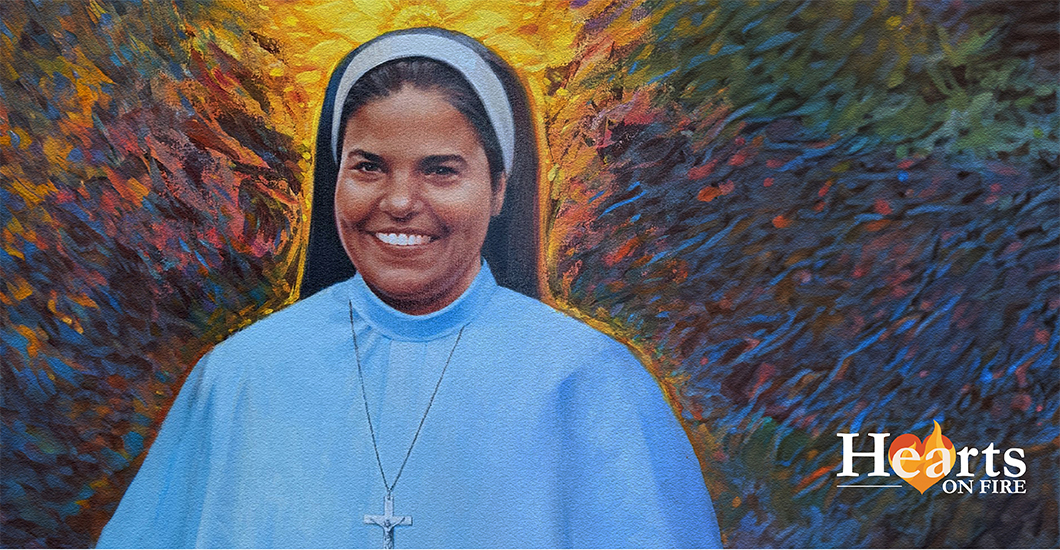
Jun 27, 2024
Enjoy
Jun 27, 2024
Rani Maria Vattalil was born on 29 January 1954 to Eleeswa and Paily Vattalil in a small village called Pulluvazhy, in Kerala, India. From a young age, she was brought up in the Christian faith, having love for the poor. She attended daily Mass and led family prayers. During the final year of high school, Rani felt the Lord calling her to consecrated life and entered the Franciscan Clarist Congregation in 1972. It was Rani Maria’s ardent desire to do missionary work in North India and serve the poor, even if it cost her life. She was sent to Madhya Pradesh (a central Indian state) and served several mission areas there.
Sister Rani Maria was given the responsibility of coordinating the social apostolate of the local diocese. She organized various educational programs for children and young people and worked relentlessly to empower the indigenous people. She understood how the poor, illiterate farmers were exploited and taken advantage of by their landlords. So, she educated them on their rights, helped them fight for justice, and spoke for those who were unjustly imprisoned. All this infuriated the upperclass landlords, who threatened her with dire consequences if she continued supporting the cause of the poor. But Rani Maria feared nothing and did not back down from her mission to 'love her neighbor.' A devious plan was then hatched by those who hated her.
On 25th February 1995, while traveling by bus, she was mercilessly stabbed 54 times by Samundhar Singh—a man hired by the landlords. She breathed her last, repeating the Holy name of Jesus. Rani Maria worked her entire life to fight for the dignity and rights of her fellow men and bore witness to the Gospel through her social activities. Sister Rani Maria’s family, following the valiant example of their daughter, forgave her murderer wholeheartedly, even inviting him to their home! This act of mercy touched him deeply; he repented of his heinous crime and became a changed man.
Sister Rani Maria was beatified by Pope Francis on 4th November 2017.
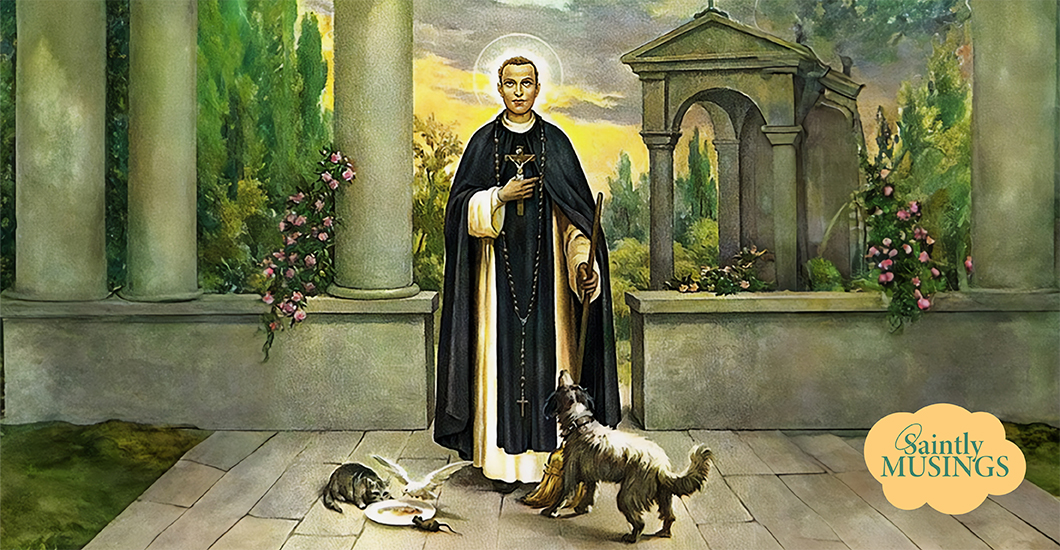
Apr 29, 2024
Encounter
Apr 29, 2024
Martin de Porres was born in 16th-century Peru; he grew up facing the stigmas of both his mixed race and illegitimacy. After a barber-medical apprenticeship in his young years, he joined the Dominicans as a ‘lay helper’ and continued his barber work in the monastery.
One day, Brother Francis Velasco Carabantes approached Martin, desiring to talk to this man whom people were already starting to believe was saintly. Martin was busy with his barber work; he absent-mindedly grabbed this novice and placed him in the barber’s chair. Brother Francis had no inclination to have his head shaved; he disliked the hairstyle that the Dominicans used.
Before he could resist, Martin had finished his job, and Brother Francis was angry beyond expression. He started to shout, calling Martin all sorts of curse words. Martin was lost in prayer, and by the time he noticed that this novice was shouting, one of the rectors had seen the commotion and was scolding Brother Francis, who was severely punished and sent away.
Martin, once he came to realize what had happened, went to the rector with all possible excuses. He begged forgiveness for this person who had verbally abused him, trying even to explain away the curse words used. Finally, he told the rector: “Everyone knows what a sinner I am.” The rector, who was aware of Martin’s saintly life, gave in to his request and forgave Brother Francis. Not satisfied with this, Brother Martin even sent fresh fruit, which was a rare delicacy in the monastery, to Brother Francis.
How many times have we rejoiced in the ‘just’ punishments that our transgressors received? Let us pray to Saint Martin for the virtue of humility, to forgive and show the other cheek, as Jesus taught us to do.

Dec 12, 2023
Encounter
Dec 12, 2023
On a scorching afternoon on the streets of Calcutta, I met a boy…
Prayer is an undeniable, central, and key part of every Christian’s life. However, Jesus emphasized two more things which clearly went hand in hand with prayer—fasting and almsgiving (Matthew 6:1-21). During the seasons of Lent and Advent, we are specifically called to commit more time and effort to all three ascetic practices. ‘More’ is the important word. Whatever season we are in, radical self-denial and giving are a continuous call for each baptized believer. Around eight years ago, God literally made me stop and think about it.
Unexpected Meeting
In 2015, I had the great privilege and blessing of fulfilling a lifelong dream to be with and serve some of the most in-need brothers and sisters worldwide in Calcutta, India, where the poor are described not only as poor but the ‘poorest of the poor.’ From the moment I landed, it was as though electricity was running through my veins. I felt such immense gratitude and love in my heart to be given this amazing opportunity to serve God with Saint Mother Teresa’s religious order, the Missionaries of Charity. The days were long but absolutely action-packed and grace-filled. Whilst I was there, I did not intend to waste a moment. After a 5 AM start to each day with an hour of prayer, followed by Holy Mass and breakfast, we set off to serve at a home for the sick, destitute, and dying adults. During the break at lunchtime, after a light meal, many of the religious brothers I was staying with took a siesta to recharge their batteries, to be ready to go again in the afternoon and on into the evening.
One day, instead of having a rest in the house, I decided to go for a walk to find a local internet café, to contact my family by email. As I turned one of the corners, I encountered a young boy aged around seven or eight years old. His face expressed a mixture of frustration, anger, sadness, hurt, and tiredness. Life had already seemed to have begun to take its toll on him. He was carrying over his shoulder the biggest transparent, heavy-duty plastic bag that I had seen in my life. It contained plastic bottles and other plastic items, and it was full.
My heart broke within me as we stood silently examining one another. My thoughts then went to what I could give this young boy. My heart sank, as I reached for my pocket, realizing that I only had a small amount of change with me to use for the internet. It added up to less than one pound in English money. As I gave it to him, looking him in the eye, his whole being seemed to change. He was so lifted and grateful, as his beautiful smile lit up his beautiful face. We shook hands, and he walked on. As I remained standing in that back street of Calcutta, I stood in awe as I knew that the Almighty God had just personally taught me such a powerful life-changing lesson through this encounter.
Reaping Blessings
I felt God had beautifully taught me in that moment that it is not the actual gift that is important but the disposition, intention, and love from the heart with which a gift is given. Saint Mother Teresa beautifully summed this up saying, “We cannot all do great things, but we can do small things with great love.” Indeed, Saint Paul said, if we give away all we have “but have not love,” we gain nothing (1 Corinthians 13:3).
Jesus describes the beauty of giving, that when we “give… it will be given to you; good measure, pressed down, shaken together, running over, will be put into your lap. For the measure you give will be the measure you get back.” (Luke 6:38). Saint Paul also reminds us that “Whatever a man sows, that he will also reap” (Gal 6:7). We do not give in order to receive, but God in His infinite wisdom and goodness blesses us personally in this life and also in the next when we step out in love (John 4:34-38). As Jesus taught us, “it is more blessed to give than to receive” (Acts 20:35).
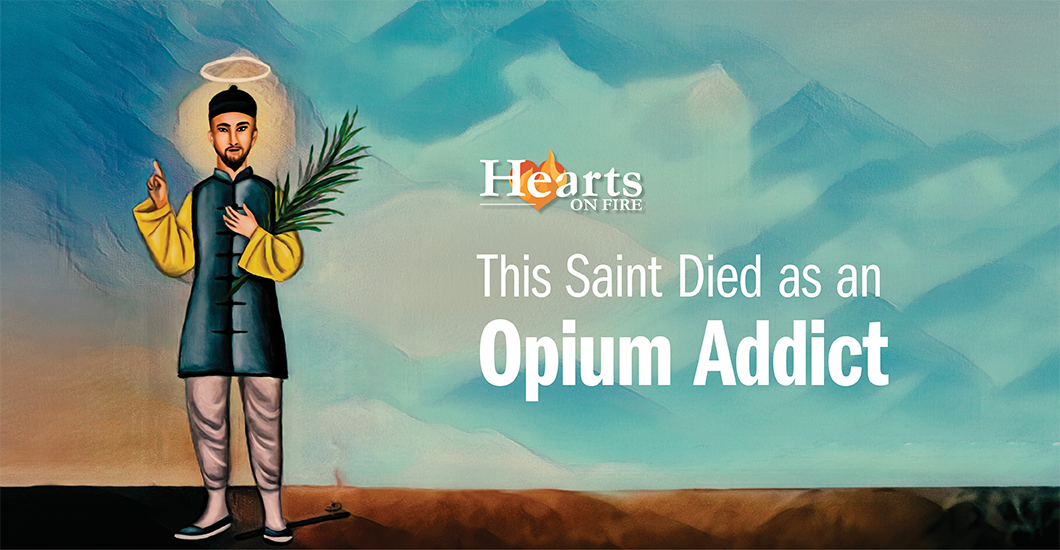
Nov 01, 2023
Engage
Nov 01, 2023
The Chinese Boxer Rebellion in the 1900s killed nearly 32,000 Chinese Christians and 200 Western Missionaries. Among these devoted Christians who gave their life for their faith, Saint Mark Ji Tianxiang stands out because, at the time of his death, he was an opium addict who had not received the Sacraments for 30 long years.
Ji was raised in a devout Christian family, and he was a respected and charitable doctor in his community. Fate be blamed, the opium he took to abate a disturbing stomach ailment took hold over him, and he was addicted to it in no time.
Though he went to frequent Confession, Ji found himself in the grips of a powerful addiction that refused to succumb to any means of resistance. His parish priest and confessor eventually told him that he could not continue to repeat the same sin in Confession anymore. Confession requires a conscious resolve to repent and sin no more, and this repeated sin, in the 19th century, was not understood as an illness. He was henceforth restricted from receiving the Sacraments, but he continued visiting the Church and stayed true to the Lord’s ways. He remained sincere to his faith because He believed in a Merciful Father.
Many assumed that he would be the first to deny the Lord when faced with the threat of persecution. But along with his son, grandchildren, and daughters-in-law, he persevered till the very end. In fact, Ji provided spiritual consolation to his fellow Christians as they were imprisoned and awaiting execution.
Stories record that as they were dragged to prison, his grandson, shaking with fear, asked him, “Grandpa, where are we going?” He calmly and jubilantly answered: “We’re going home.” He went to his death, singing the Litany of the Blessed Virgin Mary. Pope John Paul II canonized him in the year 2000.
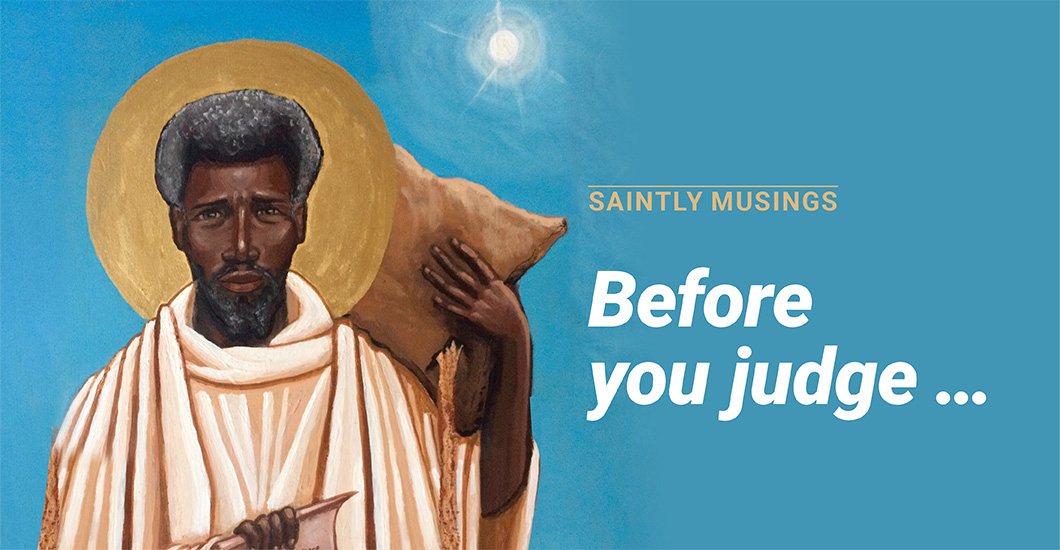
May 31, 2023
Engage
May 31, 2023
Ever heard of a robber who turned into a Saint? Moses the Black was a leader of a band of thieves who attacked, robbed, and murdered travelers in the Egyptian desert. The very mention of his name spread terror in people’s hearts. On one occasion, Moses had to hide in a monastery and was so amazed at the way he was treated by the Monks that he converted and became a monk! But the story doesn’t end there.
Once, four of the robbers of his former band descended upon the cell of Moses. He had lost none of his great physical strength, so he tied them all up. Throwing them over his shoulder, he brought them to the monastery, where he asked the Elders what to do with them. The Elders ordered that they be set free. The robbers, learning that they had chanced upon their former ringleader and that he had dealt kindly with them, followed his example: they repented and became monks. Later, when the rest of the band of robbers heard about the repentance of Moses, they also gave up their thievery and became fervent monks.
After many years of monastic struggles, Moses was ordained deacon. For another fifteen years, he continued his monastic labors. About 75 disciples gathered around the saintly Elder, who had been granted the gifts of wisdom, foresight, and power over demons by the Lord.
Once, a certain brother committed an offense in Scete, the camp of the monks. When a congregation was assembled to decide on this matter, they sent for Abba Moses, but he refused to come. Then they sent the priest of the church to him, imploring, “Come, for all the people are expecting you,” and finally, he responded to their pleas.
Taking a basket with a hole in it, he filled it with sand and carried it upon his shoulders. Those who went out to meet him asked, “What does this mean, O Father?” And he replied, “The sands are my sins, which are running down behind me, and I cannot see them. Yet, I have come here today to judge shortcomings that are not mine.” When they heard this, they set that brother free and said nothing further to him.
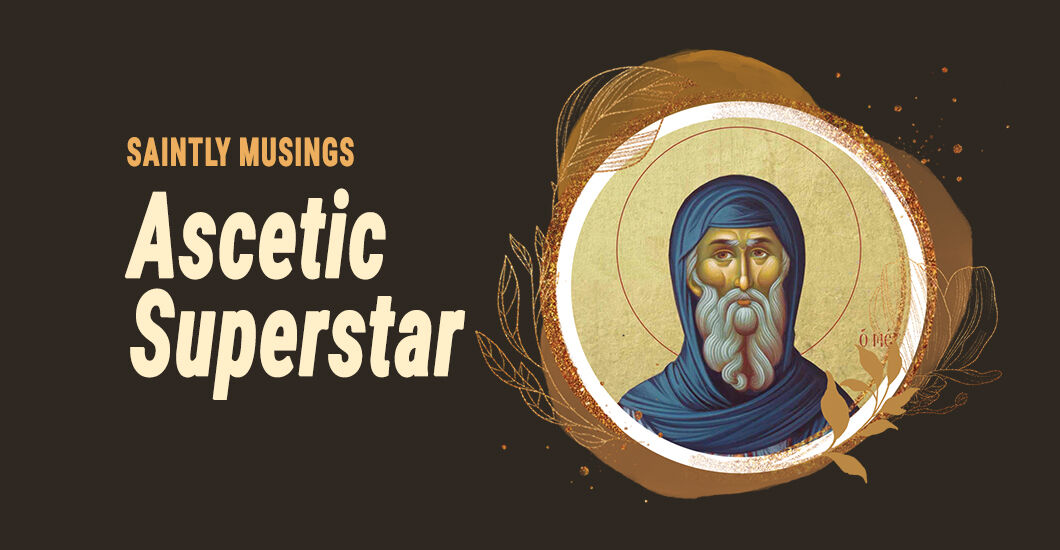
Mar 01, 2023
Engage
Mar 01, 2023
At the age of 20, Anthony lost his parents and was left with a large inheritance and the responsibility of caring for his sister. About the same time, Anthony happened to hear a reading from the Gospel of Matthew, where Jesus tells a rich young man, "If you want to be perfect, go and sell everything you have and give the money to the poor." Anthony believed he was that rich young man. Shortly after, he gave away most of his property, sold almost everything else, and kept only what he needed to care for himself and his sister. But that’s not exactly what the Lord had commanded!
Not long afterward, Anthony was at Mass once again and heard the Gospel passage, “Do not worry about tomorrow; tomorrow will take care of itself” (Matthew 6:34). Again, he knew Jesus was speaking directly to him, so he gave away even the little he had saved, entrusted his sister to the care of some holy women, and entered the desert to live a life of poverty, solitude, prayer, and mortification.
In that harsh desert landscape, the devil attacked him in countless ways saying “Think about all the good you could have done with that money you gave away!” Firm in prayer and mortification, Anthony fought off the devil and his manifestations. Many were attracted to his wisdom, and these he encouraged to seek self-denial and the hermetic life. No wonder after his death he became Saint Anthony the Great or Saint Anthony of the Desert, the father of Christian Monasticism.
Once a brother renounced the world and gave his goods to the poor, but he kept back a little for his personal expenses. He went to see Abba Antony. When he told him this, the old man said to him, "If you want to be a monk, go into the village, buy some meat, cover your naked body with it and come here like that." The brother did so, and the dogs and birds tore at his flesh. When he came back the old man asked him whether he had followed his advice. He showed him his wounded body, and Saint Antony said, "Those who renounce the world but want to keep something for themselves are torn in this way by the demons who make war on them."
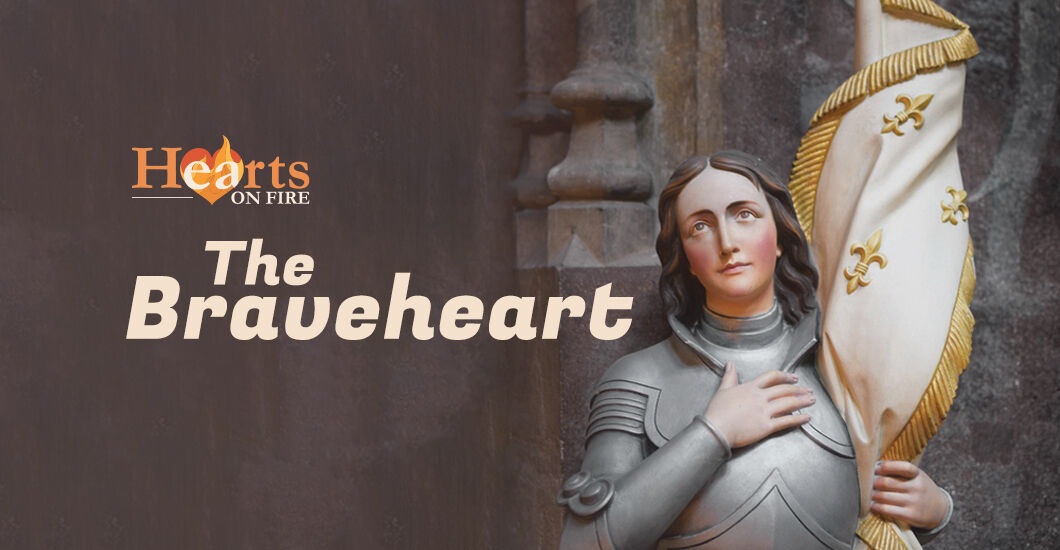
Jan 14, 2023
Engage
Jan 14, 2023
Few Saints of the Catholic Church have captured the popular imagination like Joan of Arc. Her story is depicted in paintings, sculptures, and numerous films.
Born into a peasant family in 1412, Joan grew up illiterate, but acquired a profound love for the Church and a deep faith in God from her mother. Because she loved prayer and the sacraments, her neighbors said, “She was so good that all the village loved her.” She cared for the sick and homeless, often even giving them her own bed.
By the age of thirteen, Joan began to hear the voices of Michael the Archangel, Saint Margaret of Antioch, and Saint Catherine of Alexandria. They told her she was to liberate France and ensure the French heir to the throne was installed as France’s rightful king. She won his trust by telling him details of his past only someone with divine knowledge could know. At the time, France was dominated and ruled by England.
Convinced that her “voices” came from God, Joan heroically and faithfully obeyed their instruction, despite obstacles and suffering. Prayer and contemplation remained primary in her life even as she led battles, during which she never raised the sword against an enemy
Though two years earlier a commission had “declared her to be of irreproachable life, a good Christian, possessed of the virtues of humility, honesty and simplicity”, Joan was accused of witchcraft and heresy after the English captured her, receiving no support from the very King she put on the throne. At her trial, Joan manifested her deep faith and wisdom, and despite being wrongly condemned, she never lost her faith in God or the Church. When she was burned at the stake, she proclaimed the name of Jesus while holding a crucifix to her heart, causing an observer to say, “We have burned a saint.”
Her death increased her fame and popularity. Twenty years later, a new trial declared her innocent of all her alleged crimes. After her reputation grew over the centuries to epic proportions, Joan was beatified in 1910 by Pope Pius X and canonized eleven years later by Pope Benedict XV. She is now the patron Saint of France and one of the Church’s most beloved Saints.
Joan’s obedience to God ensured France kept the Catholic faith during the Protestant Reformation while England abandoned it. France remained a solid center of Catholicism from which it would spread to northern Europe.
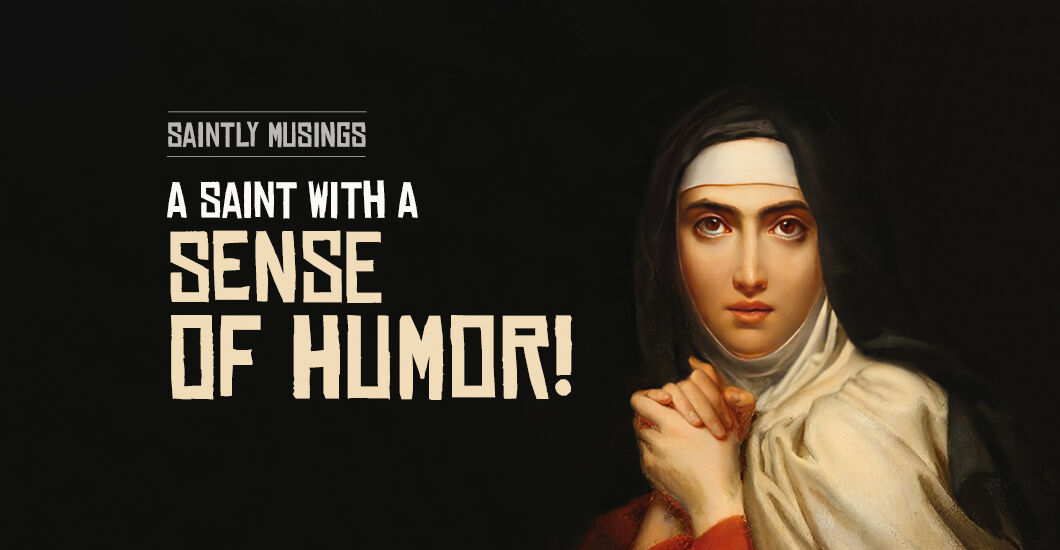
Jan 03, 2023
Engage
Jan 03, 2023
The river had swelled so high that water covered everything and all sense of where the road or footpath might be was purely a guess. With water everywhere, it seemed foolish to advance, especially in a carriage, for if anyone strayed ever so little off the road, they would perish without a doubt.
As her companions panicked, Sister Teresa encouraged them, “As we are engaged in God’s work, how could we die in a better cause?” She then led the way on foot to the convent through the fierce storm. Suddenly she slipped down an embankment and fell squarely into the mud.
Instead of complaining or cursing, the irrepressible nun, looked to the sky and quipped, “If this is how you treat your friends, no wonder you don’t have many!” The sixteenth-century Saint and Doctor of the Church, Teresa of Avila, didn’t take herself or this world too seriously and brushed off the little hardships of life with a sense of humor.
Her ability to humbly recognize her own faults and need for grace was also tinged with her refreshing humor. In her autobiography, Teresa writes, “Having virtuous and God-fearing parents would have been enough for me to be good if I were not so wicked.” Saint Teresa was also mindful of false piety and once said, “From silly devotions and sour-faced saints, good Lord, deliver us!”
A healthy and good sense of humor will keep our head straight and enable us to see the world’s true beauty. Did God say that we need to be “sour-faced” to be holy? So, if you want to become a saint, lighten up, share the joy of the Lord and laugh with your friends like Jesus did.
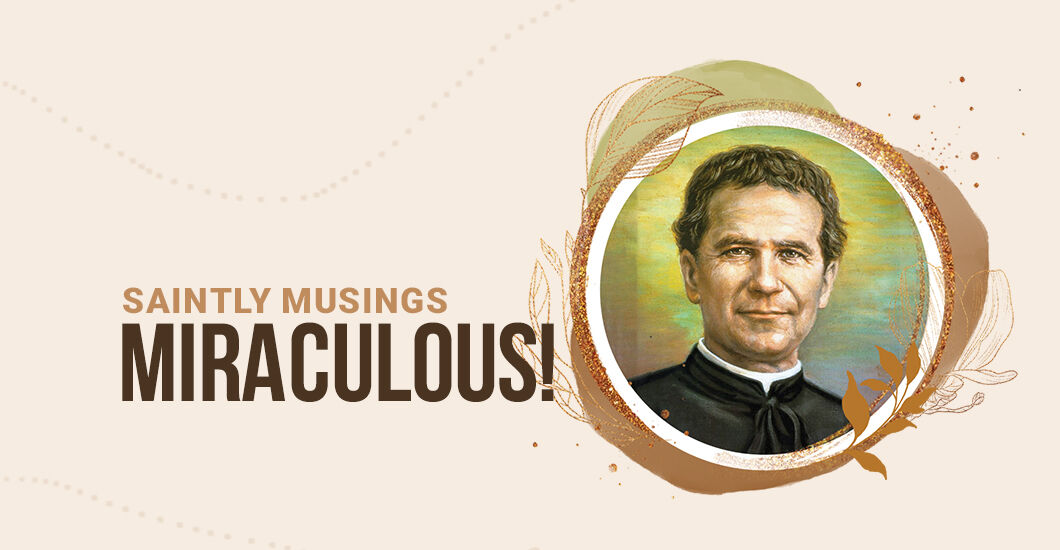
Nov 01, 2022
Enjoy
Nov 01, 2022
Maria Stardero, a 12-year-old girl, was led by her aunt into the church where dozens of boys were standing about or kneeling in prayer as they waited for Don Bosco to arrive for confessions. As she made her way to a pew, some of the boys noticed that the young girl’s eyes had no corneas and resembled white marbles.
When Don Bosco arrived, he asked the girl about her condition. She had not been born blind, she told him, but because of eye disease she had completely lost her sight two years earlier. When he inquired about medical treatment, her aunt began to sob. They had tried everything, but doctors had only one thing to say: “It is incurable!”
“Can you tell whether things are big or small?” Don Bosco asked the child.
“I can’t see anything.”
He led her to a window to see if she could perceive light, but she couldn’t.
“Would you like to see?” Don Bosco asked.
“Oh, yes! It’s the only thing I want,” said the girl, breaking down in tears.
“Will you use your eyes for the good of your soul and not to offend God?”
“I promise I will, with all my heart!”
“Good,” said Don Bosco. “You will regain your sight.”
After recourse to Mary, Help of Christians, Don Bosco recited the Hail Mary and blessed the girl. Then holding a medal of Mary Help of Christians before the girl’s eyes he asked, “For the glory of God and the Blessed Virgin, tell me what I’m holding in my hand.”
“She can’t . . .” the elderly aunt began, but Don Bosco paid no heed. After a few seconds, the child shouted, “I see!” Immediately she described the medal in great detail. But when she stretched out her hand to receive it, it rolled into a dark corner.
The aunt moved to retrieve it, but Don Bosco motioned her back.
“Let her find it to see if the Blessed Virgin has thoroughly restored her sight,” he insisted. Immediately, the girl walked to the dark corner and bent down to retrieve the tiny object. As the many witnesses looked on, awed and profoundly moved, Maria, thanked Don Bosco profusely and with sobs of great joy.
Entrust everything to Jesus in the Blessed Sacrament and to Mary, Help of Christians and you will see what miracles are! Saint John Bosco
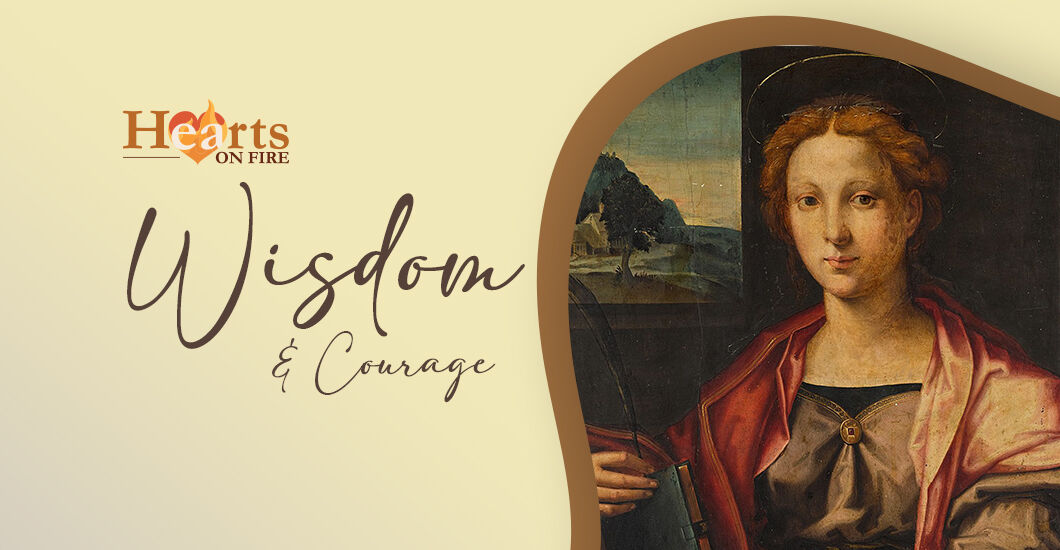
Nov 01, 2022
Engage
Nov 01, 2022
Venerated as one of the fourteen Holy Helpers (intercessors invoked especially against diseases) Saint Catherine of Alexandria is a virgin martyr of the late third century and early fourth centuries. Though there are no primary sources that attest to her life, there are many traditions about her kept alive over the centuries, including the fact that Joan of Arc claimed hers as one of the voices that spoke to her.
Born around 287 in Alexandria, Egypt, a cultural and educational center of the ancient world, she was of the noble class and a very gifted student. She embraced Christianity at age 14 after seeing a vision of Jesus and His blessed mother.
A precocious young woman, she didn’t hesitate at the age of 18 to challenge the emperor Maxentius when he began to cruelly persecute the Christian community. The emperor was so impressed by her wisdom that, rather than execute Catherine, he ordered her to debate his best philosophers, whom she easily bested. In fact, the philosophers were so taken by her wisdom, that they and some 200 soldiers embraced the faith. Sadly, all were immediately martyred.
Frustrated by Catherine’s amazing resilience, the emperor ordered that she be jailed and tortured. But even her brutal scourging did not cause Catherine to give up her faith. So, the emperor tried a novel approach: he offered to marry her and make her an empress. Already wedded to Christ and having dedicated her virginity to him, Catherine refused the emperor.
Enraged, the emperor ordered that she be executed on a spiked wheel, an especially brutal means of torture. But when Catherine touched the wheel, it miraculously shattered. Finally, the emperor commanded she be beheaded.
Especially popular during the medieval period, devotion to Catherine spread during the crusades and she has remained popular in both the Roman Catholic and Orthodox churches. Celebrated in much renaissance art, Catherine is the patroness of students and teachers, librarians, and lawyers. Her feast is celebrated on November 25.
May her courage and her wisdom in accepting death rather than abandoning her faith in Christ inspire us and give us hope.
Saint Catherine of Alexandria, pray for us.
